

To navigate, use keyboard arrow or mouse keys. Or, tap lower right corner of screen for main controls and quick access.
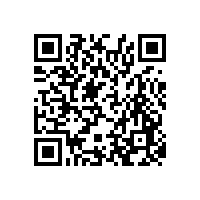
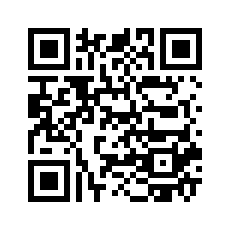
Quick Summary of MMM: Mobile Ministry Magazine (MMM) was started in the Fall of 2004 as a response to joblessness, and a heart to do more with my growing knowledge of mobile technology beyond the reviews and editorials that I was writing for BarganPDA (later Brighthand). The first issue was produced for a small audience of 50 persons who agreed to test out the magazine's delivery and format. However, none of the 50 persons read it, nor gave feedback. The project was shelved untli the Spring of April 2005 when in response to repentence, MMM was given a dual home as a downloadable magazine and a (near-daily) website. The magazine would soon morph into a blog-only offering, and successive site changes and downloadable issues later, would become featured around the web for its notable difference in how it presented mobile technology. For a long time, it was one of a few sites that would even broach the topic of faith and technology in a manner which was a bit more enjoyable than traditional publications. Several posts and topics gained attention, including attention from the BBC, Dallas Morning News, National Religious Broadcasters (NRB) and more. MMM's brand has remained a pecular one, even with much of the world now paying more attention to mobile. And indeed, the early question of "what is happening with the church and mobile" is being addressed by several entities. Currently, MMM provides an alternate perspective on matters of mobile/social web technology and faith through its team of writers, and maintains resource listings of software, services, and research articles which point to existing contributions which further the understanding of mobile as a ministry tool. MMM has also expanded ot offer training, speaking, and consulting services to those wishing to engage the practice of mobile ministry, in whatsoever capacity they are looking to be involved.
Quote: Clarke's Three Laws
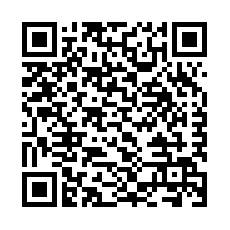
Various Internet and Mobile Statistics
Sources
Communication and computational events facilitated through the use of handheld devices which expand from personal contexts to mediated and shared life experiences.
Handheld devices: Mobile is defined in the marketplace by any devices which have screens of less than 5in in diameter. By physics, however, mobile devices can include any computer which is not dependent on wired (tethered) power for normal operation. This adds tablets, GPS devices, laptops, and even some game systems into the fold for what is considered mobile computing.
Mediated and shared life experiences: This can include some of the obvious items such as talking on the phone, sending text messages, using the mobile Internet, and social networking. But, can and should be expanded to shopping, using professional/government services, and environmental tracking (weather, crops, sex, etc.)
Definition of Mobile Ministry: The skillful use and application of computer technology classified as mobile for the context of fulfilling the religious practices which forward the proclamation of the key ideals and history of the faith, following form to and innovating on top of cultural and faith traditions within applied contexts.
Identified Applications of Mobile Ministry:
Sources
All of this technology is one thing, and seeing where and how faith has its intersection is another. But many people just see mobile as portable voice terminal. They really don't realize that within mobile there are three layers of interactvity, that last of which has been the most disruptive:
Within the honing of mobile behaviors, this idea of re-engagement has created layers of interaction for both faith and cultural practices. For example, the idea of gamification draws on the psychology and idea that all elements of productive living behaviors can be distilled and redefined in a manner that's similar to game play and game development.
The problem though with basing the experience of culture and/or faith on experiences is that two extremes are inevitible: access and excess. In respect to access, the ability to be a productive member of a community is based not just around your devotion to it (ideological) but also around your ability to interface with it. If you don't have access to the service (for example, Facebook), then you lose our on the conversations, games, etc. (the experiences) that have been programmed into that world to be used. In the same respect, excess - or the wanton display of status, acumen, ability, and wealth - drives some to make decisions to either hermit themselves from the culture, or create an alternate culture by which their non-association of certain identifiers.
It can be said that all people pray, but only a few have religion. And if you were to some of the numbers regarding religion in the world, it would probably sound like a pretty solid statement. The interesting note to this is that mobile is even finding its way towards shaking up how we process prayer(s) and religion. However, we must be careful not to overestimate the potential of mobile or any technology as it relates to faith endeavors. The slide above (#4) where we talked about demonstrated uses of mobile in ministry contexts gives us a better viewpoint at which to see the impact of technology on faith, faith on technology, and culture with technology. In respect to prayers, many faiths have regions where it is not uncommon to text prayers, or to text for religious advice. Religion as a whole though has been slow to embrace some of the re-enagement affects of mobile - mainly because it (similar to the advent of books and public education) takes specific (controlled) definitions of faith out of the hands of a ruling few, and places the onus on the believing many to exercise and be accountable demonstrations of what it is they believe.
Sources:
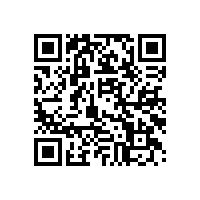
Book/Blog Recommendations:

View Presentation
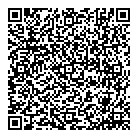
Download my vCard